Creating business solutions to poverty
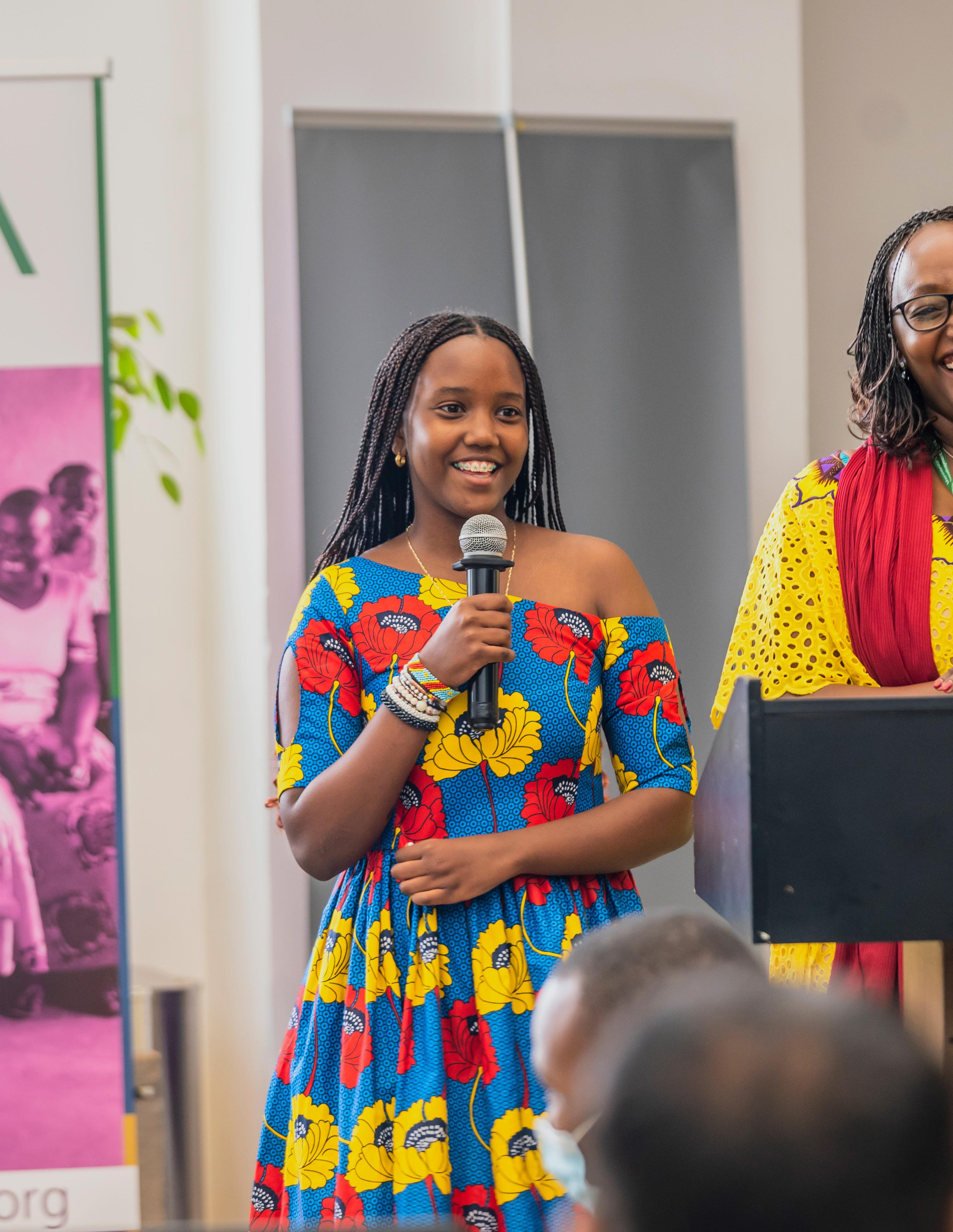
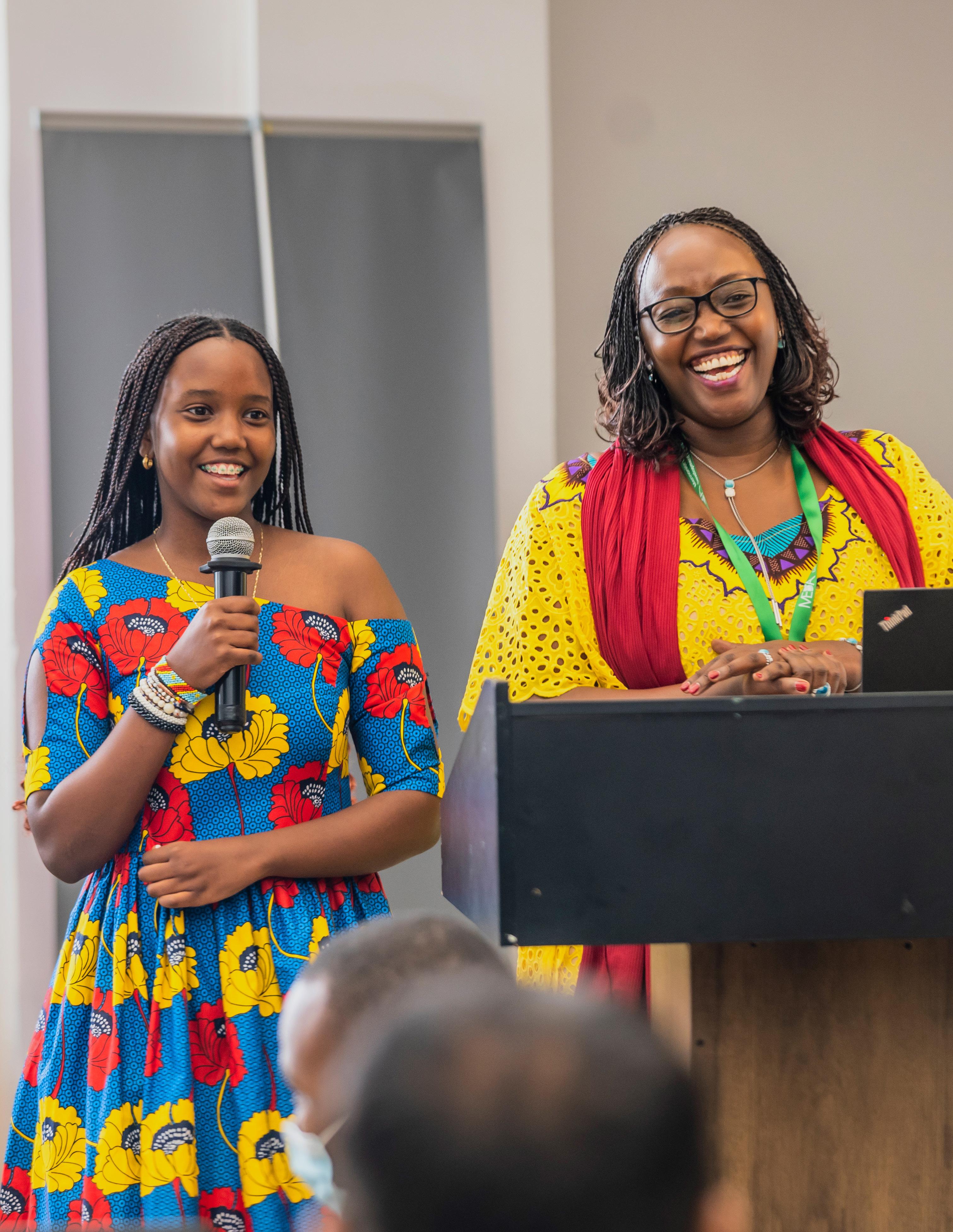
MEDA –Mennonite
– is an international economic development organization that creates business solutions to poverty.
Nearly 70 years ago MEDA began as an association of Mennonite business people who believed they were called to be faithful in generously sharing their abilities and resources. Continuing in that Christian tradition, MEDA welcomes all who share our values and want to join us in our mission.

Who We Are What We Do
MEDA has worked in over 70 countries and brings a unique market systems approach to project design that integrates technical assistance and access to capital, focusing our expertise in agri-food market systems. We work alongside our partners and clients, funded by both private and institutional donors, striving to alleviate poverty by creating and sustaining decent work for women and men. Success is measured by the creation of more jobs. When businesses do well, incomes increase, and more jobs are created.
On the front cover:
whom she is
a
Second Chance Success project.
Vision Mission
MEDA
Feza Kanyi, owner of Precious Dishes restaurant (Rwanda) and her daughter Ishimwe Shekinnah,
mentoring to be
leader in the business when she is older. Feza received financing for her restaurant through the
Economic Development Associates
That all people may unleash their God - given potential to earn a livelihood, provide for families and enrich communities.
2
creates business solutions to poverty.
Letter from the Board Chair and President & CEO

At this time last year, we began our letter by saying the previous 12 months had been characterized by a world that was working together to fight a healthcare crisis that was having an unprecedented impact on businesses and economies. Now a year later and looking back, we face continuing challenges arising from the COVID-19 pandemic and the expanding effects of conflict, food insecurity and rising inflation.
Despite these ongoing compounding crises, we demonstrated our focus and resilience this past year as we worked hard to continue delivering on our strategy, Towards An Equal World. As we reflect on the fiscal year 2022, we are immensely proud and grateful to our supporters, partners, and MEDA staff worldwide. We successfully signed on significant partnerships that will contribute towards achieving our ambitious target of 500,000 sustained decent jobs, especially for women and youth in the agribusiness sector. We successfully closed out on our commitments that had ended and are changing how we engage and partner to do our work. Our colleagues across the MEDA community continue to deliver results with ingenuity and grace despite all the challenges. For all these, we are grateful to everyone who has been a part of making this possible.
Though we cannot be confident of the future, we can be clear and resolved on our vision and mission, which will continue to guide us to lead positive systems-level change. We are committed to a renewal of our work that takes a holistic and long-term view to sustainably address poverty as we partner with the private, public, and civil society sectors to do what none of us can achieve on our own.
In 2023, MEDA will be 70. We look forward to celebrating this Platinum Jubilee, knowing that what has defined and continues to define our story has never changed: focusing on using business solutions to create prosperous market systems for ‘agri-preneurs’ and partnering with others to enable longterm sustainable systems-level change.
As we work, we grow, we learn, and we adapt. Our partners featured in this year’s report are an example of who made MEDA’s contribution towards impact grow deeper and broader. We invite you to learn more about our work, partners, and stewardship of the resources you entrusted to us.
Wishing you continued health, happiness, and success in the coming year.
Sincerely,

 Gaeddert Chair, Board of Directors
Gaeddert Chair, Board of Directors
 Nyambi President & Chief Executive Officer
Greg
Greg Gaeddert
Dr. Dorothy
Dr. Dorothy Nyambi
Nyambi President & Chief Executive Officer
Greg
Greg Gaeddert
Dr. Dorothy
Dr. Dorothy Nyambi
3
MEDA is committed to measuring lasting impact. Gathering data on our work informs our decisions, adaptations, and interventions. By collecting and analyzing data, we are better positioned to respond to changing contexts and ultimately contribute more meaningfully to our clients’ economic empowerment.
Ramatoulaye aspired to become a farmer after graduating from university. But she faced many challenges. Senegalese farmers lack access to necessary resources, like seeds and technology. There was also the impact of COVID-19, which closed markets and reduced demand for agricultural products.

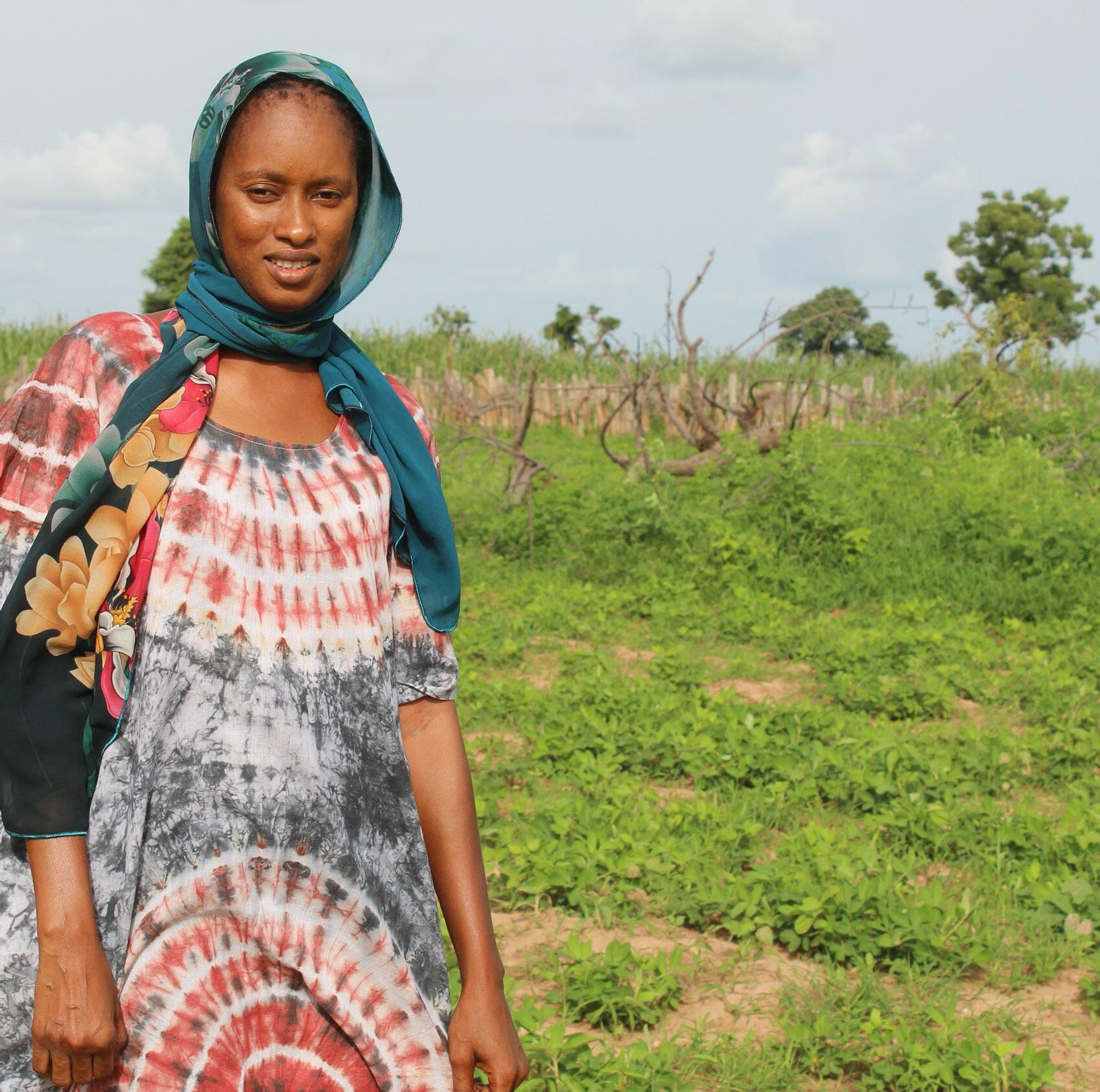
Yet, Ramatoulaye saw an opportunity to fill a need for local producers in her community. So, she connected with MEDA’s Initiative for the Economic Resilience of Micro, Medium and Small Enterprises (IREM) project in Senegal. She learned about crop strains, rain gauge management, and data collection. Ramatoulaye also invested in plow services for her land and hired workers from her village.
I thank MEDA for making my dream come true, and I encourage young people to get involved in agriculture for their community, Ramatoulaye said.
Now, Ramatoulaye’s farm is producing highquality peanut crops using organic fertilizer.
By working with MEDA, Ramatoulaye provides decent work opportunities for herself and her community.
Results and Resources Check out our Impact Page: meda.org/impact
DIRECT CLIENTS (INDIVIDUALS AND BUSINESSES) INDIRECT CLIENTS (INDIVIDUALS AND BUSINESSES) 167,017 561,655 WAGE AND SELF-EMPLOYMENT DECENT WORK OPPORTUNITIES CREATED OR SUSTAINED 43,059 ACTIVE PROJECTS 21 COUNTRIES 12+ RESOURCES INVESTED $33.2M 4
MEDA partners with local private, public and civil society actors, strengthening individuals, institutions, communities and ecosystems, thereby contributing to sustainable and inclusive systems change. We gratefully acknowledge the generous support of our donors:
Major Funders
2,522 individual MEDA donors
Networks
Aspen Network of Development Entrepreneurs (ANDE)
Asia Venture Philanthropy Network (AVPN)
Canadian Association for International Development Professionals (CAIDP)
Canada Forum for Impact Investment and Development (CAFIID)
Centre for Sustainable Climate Solutions (CSCS)
Cooperation Canada
Gender Smart
Global Impact Investing Network (GIIN)
Humentum
Partners
Africa Communications Group
Genesis Analytics Business Partners International Criterion Institute
Danforth Centre ESPartners
Food Security Policy Group (FSPG) International Institute of Tropical Agriculture (IITA)
Investisseurs & Partenaires (I&P)
Microvest | DAI Pro Mujer
Sarona Asset Management Volta Capital Wakami
Waterloo Climate Institute (formerly IC3)
Women’s World Banking 5
Turning Crisis into Opportunity…
When you are in business, you have no idea what will happen tomorrow, but now, of course, being more persistent, having faith that tomorrow will be better than today. So not giving up is a big lesson, which I've learned over time, Hadija reflected.
Hadija knew she wanted to be an entrepreneur. She saw how many young people like herself struggled to find work. So in 2015, she learned about onion farming, took a course on manufacturing industrial products, and launched GBRI Solutions focused on the export market.

Pursuing a strategy of providing quality products by working directly with local farmers, GBRI exported its products to various markets in Europe.
Then the pandemic struck. Markets closed around the world threatening the hard work of GBRI Solutions. “…We did not plan for COVID… [the] pandemic affected us big time,” Hadija said.
Undaunted
Hadija pivoted to local markets in Tanzania, and broadened her focus to other value chains, like bananas and avocados. With MEDA’s assistance in financing, Hadija invested in building cold storage infrastructure for her produce which in turn improved her business’ ability to engage more farmers. Defying expectations of working with 200 smallholder farmers – she engaged more than 500 farmers.

GBRI now has 42 permanent employees and hire between 50-200 casual workers by offering increased income to their farmer suppliers.
Through MEDA’s assistance, the hard work of Hadija and her shrewd management of GBRI Solutions, it weathered the pandemic crisis and emerged on a stable footing. Hadija’s story demonstrates the power of entrepreneurship to create decent work. Now, she is achieving her dream – running a profitable business while providing decent work opportunities for many farmers in her community – with plans to expand to new markets in both Tanzania and Europe.
Read more about the SSBVC project in Tanzania, including a Learning Series launched last year, online at meda.org/projects/ssbvc or more about Hadija at meda.org/hadijas-story
How Hadija created decent work for herself and her community, supported by the SSBVC MEDA project in Tanzania.
6
Recently Completed Projects and Lessons Learned
We are committed to creating lasting impact – ensuring strong supports exist for our clients which remain long after projects close. This involves the monitoring and measurement of impact throughout the duration of our projects so that we can share learnings across our projects and adapt as needed to shape and inform our approach. Data collected from our projects empowers us to make informed decisions, identify problems, be strategic in our approach. It is also used to ensure current and future projects are sustainable, scalable and measurable.
Here are two examples of recently completed projects and the lessons we learned:
The ATTSVE project in Ethiopia (2014-2021) increased the number of men and women graduates who have the skills and knowledge to succeed in the commercial agriculture sector in Ethiopia from agricultural colleges in Maichew, Nejo, Woreta, and Wolaita Soddo, Ethiopia.
The BEST Cassava project in Tanzania (2017-2021) supported the creation of hundreds of new Cassava Seed Entrepreneur businesses that sold quality-assured, disease-resistant, and higher-yielding cassava seed varieties. The project exceeded original targets by 85% and the work is continuing through a new project, BASICS II.
and business skills
*Agricultural Technical and Vocational Education and Training (ATVET)
the
the capacities of the government and private sector is
expanding
to new disease-resistant breeds and in helping the cassava seed market to flourish. Learn more: ATTSVE Learning Series meda.org/attsve-Is Learn more: Baltazari’s story at meda.org/baltazaris-story GLOBAL AFFAIRS CANADA $1.7M DALHOUSIE UNIVERSITY MEDA PRIVATE SUPPORTERS $140K 4 8 *ATVETs STARTED ON-CAMPUS BUSINESSES 272 STUDENTS ESTABLISHED BY BUSINESSES 62 RESULTS BUDGET Partnered with BILL AND MELINDA GATES FOUNDATION $12M WORKED WITH BUDGET 53,794 642 CASSAVA SEED ENTREPRENEUR BUSINESSES WERE POSITIVELY IMPACTED ROOT FARMERS INTERNATIONAL INSTITUTE OF TROPICAL AGRICULTURE Partnered with 7
What we learned Practical learning opportunities are valuable parts of
learning experience. They should be an essential part of the curriculum for ATVET programs along with entrepreneurism
training. What we learned Strengthening
critical to
access
HAITI
SENEGAL SIERRA LEONE GHANA
NIGERIA
PARAGUAY
PROJECT NAME
Technolinks+ Women’s empowerment for Central America (WE4CA)
Supporting high potential micro, small, and medium enterprises (MSMEs)in Haiti (ATTEINDRE–ATTAIN)
Resilience and inclusion through investment for sustainable agrikultura (RIISA)
Ukraine horticulture business development project (UHBDP)
Farmers' economic advancement through seedlings (FEATS)
Greater rural opportunities for women 2 (GROW 2)
Youth entrepreneurship and women’s empowerment in Northern Nigeria (NIGERIA WAY)
Initiative pour la résilience economique des micro, moyennes et petites entreprises (IREM)
FUNDER GAC USAID GAC GAC mastercard foundation DIRECT CLIENTS 1,427 10,792 47,782 43,977 13,820 264 19,540 DECENT WORK 1,256 6,943 2,176 1,655 25 8,400 EXPENSES $1,936,256 $4,046,785 $738,168 $2,062,034 $1,102,418 $735,079 $2,451,997 $1,855,138 $1,997,888 NEW PROJECTS IN FY22 MEDA RISK CAPITAL FUND (MRCF) INVESTMENTS
NICARAGUA
GUATEMALA Where We Work LEAP | LATIN AMERICA & CARIBBEAN, EASTERN EUROPE, ASIA PACIFIC WA/MENA | WEST AFRFICA, MIDDLE EAST & NORTH AFRICA COUNTRY NICARAGUA NICARAGUA / GUATEMALA HAITI PHILIPPINES UKRAINE GHANA NIGERIA SENEGAL
Adaptation et valorisation entrepreneuriales en irrigation (et agriculture) rurales (AVENIR) 8
AFRICA
UGANDA
UKRAINE ETHIOPIA TANZANIA
TAJIKISTAN
PHILIPPINES
KENYA
RWANDA
ESCA | EASTERN, SOUTHERN & CENTRAL AFRICA GLOBAL
ETHIOPIA
Ethiopians motivating enterprises to rise in trade and agribusiness (EMERTA)
KENYA KENYA/ RWANDA
Equitable prosperity through private sector development (EPTPSD –MSAWA)
Leveraging equality for genderinclusive economic development (LEGEND)
Virus resistant cassava for Africa plus (VIRCA Plus)
Second chance success (Invest 001)
Feminist entrepreneurs growing green economies (FEGGE)
TANZANIA
Building an economicallysustainable seed system in Tanzania for cassava (BEST Cassava)
Leveraging equality for genderinclusive economic development (BASICS II)
RTB (roots, tubers & bananas) accelerator for rapid propagation innovations and distribution of seeds (RAPID Banana)
Mastercard Foundation Africa Growth Fund (MFAGF)
Trading Up Emerging Markets Impact Investing Fund (EMIIF)
TANZANIA/ UGANDA AFRICAN CONTINENT MULTICOUNTRY SE ASIA Initiative résilience economique micro, moyennes petites entreprises
mastercard foundation GAC
USAID, DANFORTH USAID GAC BILL & MELINDA GATES FOUNDATION
mastercard foundation GAC 19,540 2,379 19,894 1 18 7,109 11 2 1 8,400 10,292 10,829 17 211 1,235 20 $1,997,888 $2,025,390 $2,801,666 $547,645 $298,501 $1,039,667 $1,965,501 $515,376 $853,820 $520,273 $65,958
To explore each of MEDA’s projects, check out our interactive map and project pages online: meda.org/where-we-work
9
MEDA has made strong progress towards our strategic objectives this year. While we fell short of our decent work target, we’re on track towards our ten-year goal. We’ve continued to implement quality programs in the agri-food system and have deepened our programmatic approaches across key countries. We have progressed on our journey to a North South equilibrium, with increased hiring in country offices, developed tools, practices and training for staff. We have continued to develop partnerships for system level impact, including a catalytic partnership which positions MEDA as a leader in impact investment for women-led SMEs. Our work continues to work toward the UN sustainable development goals and contributes directly to SDG #8, promoting decent work opportunties for all.
8,848
34,211 43,059
DECENT WORK OPPORTUNITIES 47% WOMEN
Harnessing the power of finance to achieve their dreams
| Cosecha Partners and the Technolinks+ project
The project is part of the company’s long-term vision, therefore, the matching grant is an invaluable contribution to the achievement of our objectives,” Pilar said.


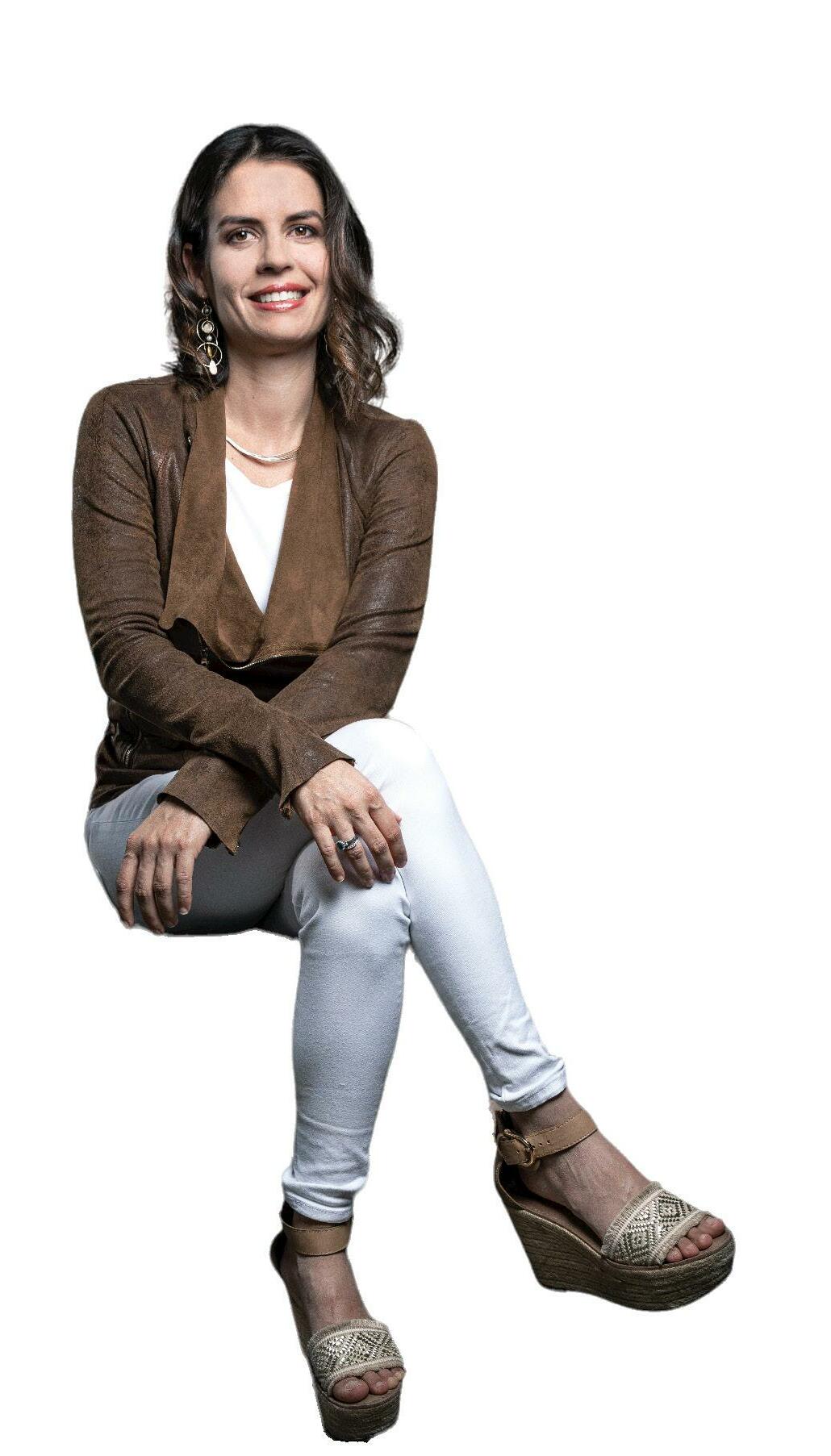
In Nicaragua, agriculture matters - almost one-third of Nicaraguans work in this sector. But making a living in agriculture is difficult. Cosecha Partners (CP) knows these challenges well. Founded in 2014 by John Gohring and Pilar Martinez, it supplies organic food and specialty ingredients to the international food industry and sustainably supports smallholder farmers and their communities. Yet, CP lacked the necessary infrastructure and inputs to produce high-quality products. There were also the impacts of climate change and COVID-19, which reduced demand for their products.
CP’s business improved when it partnered with MEDA. Through their partnership, CP was provided with a matching grant of $81,250 USD. It used the finance to buy a cocoa laboratory, gave agronomic
Read the full strategic plan online: meda.org/strategic-plan
training to its staff members, created four macadamia plant nurseries, and built a drying tunnel for its cocoa produce. CP also developed a gender policy and provided women nursery workers with more professional development opportunities.
The results were promising: 23,013 trees were planted, nearly 330 acres of coffee plantation were reforested, 460 small producers benefited from agroforestry trees, and 324 Agroforestry systems were strengthened.
The matching grant supported CP in updating its infrastructure and training. As a result, this enabled its business to become more productive and adapt more effectively to climate change. By working with MEDA’s Technolinks + project, CP is further providing decent work for agricultural workers and farmers in Nicaragua.
Towards
an Equal World
SELF-EMPLOYMENT
SALARIED
10
MEDA Risk Capital Fund
MEDA’s Risk Capital Fund (MRCF) is a portfolio of catalytic financial assets that MEDA works with to alleviate poverty by investing in viable Small and Medium-Sized Enterprises (SMEs) and funds in emerging markets, creating jobs and thereby supporting local economic growth. The heart of the MRCF is to prioritize access to finance for women and youth with a focus on return on results, change and impact in addition to capital preservation and a financial return enough to cover costs associated with maintaining and managing the fund (evergreen). This asset is aligned with MEDA’s overall strategic focus to work in the agri-food ecosystem.
Key Investment Assets
June 30, 2022
Sarona Global Growth Markets Fund (SGGM1), International (equity) 4,555,921
MiCredito, Nicaragua (equity) 2,522,041
Sarona Frontier Markets Fund 1 (equity) - winding down 2,173,031
Sarona Global Growth Markets Fund (SGGM2), International (equity) 2,141,491
Business Partners (BPI), East Africa (equity) 1,526,402
IMON International, Tajikistan (equity) 1,492,535
Sarona Trade Finance Fund (equity) - wind down by 2023 1,392,782
CODIP S.A., Paraguay (equity) 1,298,978
MicroVest Enhanced Debt Fund (equity) 958,558
Women's World Bank Capital Partners (WWB) (equity) Fund I 527,343
Key Learnings
• Making impact investments in platform builds and project-related investments increases outreach and impact, whereas one-off investments are typically tied to a more focused objective.
• Mobilizing capital from investors and donors to finance market-based approaches is essential to meeting the UN sustainable development goals. Combining risk capital and technical assistance enables MEDA to act as a trusted intermediary in establishing blended finance partnerships.
Enduring Impact Agile Process Flexible Investing Recycled Capital
Women’s World Bank Capital Partners (WWB) (equity) Fund II 457,266
EFTA - EAFrica Group (EFAG), Tanzania (equity) 710,409
Mountain Lion Agriculture, Sierra Leone (equity) 534,930 U-IMCEC, Senegal (loan) 500,000
Sarona Asset Management (loan) 126,382 Business Partners (BPI), East Africa (loan) 303,700
Mountain Lion Agriculture (loan) 195,824
Sarona Risk Capital Fund 1 LP (equity) 151,344
Fonkoze S.A., Haiti (equity) 125,911
Sarona Asset Management (equity) 18,130
SEAF Flex Fund (equity) 124,456 MicroVest Plus (equity) 85,033 Access Africa Fund (equity) 25,163 MicroVest SDF (equity) 6,637 Total MRCF 21,796,139
• Starting new companies can add significant complexity and risk to investments Rather, investing in established SMEs with competent management teams enhances the likelihood of achieving financial results and long-term impact.
• Investing in funds boosts diversification, leverages local investment expertise and decreases transaction fees, helping to improve the risk-return profile of the portfolio while supporting the development of local financial ecosystems.
A gift of a lifetime at any life stage. A gift in your Will is an easy way to impact entrepreneurs’ lives for years to come. Find out more at meda.org/donate/securities-estate
11
Financial Statements
Combined Balance Sheet—Audited
As at June 30, 2022 (stated in ‘000s US Dollars)
MEDA Risk Capital Fund 2022
MEDA Operations 2022 Total 2022 Total 2021
Assets
Current assets
Cash and short-term investments - unrestricted 1,153 3,522 4,675 7,719
Cash and short-term investments - donor restricted 55,753 55,753 8,479
Account receivable and other current assets 15 3,511 3,526 2,396 Advances to MEDA country programs 1,804 1,804 2,622
MEDA member current portion of loans receivable
Current portion of loans 94 94 1,023 1,262 64,590 65,852 22,239
Non-current assets
Investment and loans receivable 21,857 21,857 20,671
MEDA member loans receivable
Capital assets 1,457 1,457 1,628 21,857 1,457 23,314 22,299 23,119 66,047 89,166 44,538
Liabilities
Current liabilities
Accounts payable and accrued liabilities 115 496 611 1,328 Deferred grants and contracts 57,379 57,379 10,948 Deferred contributions 177 177 153
Due to MEDA country programs 416 416 98
Current portion of notes payable 1,466 1,466 3,382 1,581 58,468 60,049 15,909
Long-term liabilities Notes payable 3,000 3,000 5,898
Net Assets
MEDA Risk Capital Fund 18,537 18,537 15,884
Unrestricted 7,580 7,580 6,847 18,537 7,580 26,117 22,731 23,118 66,048 89,166 44,538
Note: Audited Financial Statements, comprising MEDA’s North American-based operations are available upon request.
Combined Statement of Operations and Changes in Unrestricted Net Assets—Audited
For the Year Ended June 30, 2022 (stated in ‘000s US Dollars)
MEDA Risk Capital Fund 2022
MEDA Operations 2022 Total 2022 Total 2021
Revenue
Charitable contributions 2,719 6,482 9,201 6,254
Grants and contracts 21,683 21,683 19,435
Consulting & program management fees 4,396 4,396 3,910 Convention & tours 15 14 24
Realized investment income 586 10 596 312
Unrealized investment income 600 600 1,008 Other 117 117 114
Total Revenue 3,905 32,703 36,608 31,057
Expenses
Development programs 28,935 28,935 26,371 Resource development 1,926 1,926 1,613
MEDA Risk Capital Fund operating costs 1,252 1,252 1,086 Constituency engagement 1,060 1,060 887
Unrealized investment loss Other 49 49 23
Total Expenses 1,252 31,970 33,222 29,980 Excess of revenues over expenses (expenses over revenues) for the year 2,653 733 3,386 1,077
Unrestricted net assets - beginning of year 15,884 6,847 22,731 21,654 Unrestricted net assets - end of year 18,537 7,580 26,117 22,731
Revenue Expenses
Charitable contributions (25.1%)
Grants and contracts (59.2%)
Program management fees (12%) Convention and tours (0%)
Realized investment income (1.6%)
Unrealized investment income (1.6%)
Other (0.3%)
Development programs (87.1%)
Resource development (5.8%)
MEDA Risk Capital Fund (3.8%)
Constituency engagement (3.2%)
Unrealized investment loss (0%) Other (0.1%)
MRCF Portfolio
Direct Debt (5.7%)
Direct Equity (38.1%)
Equity Funds (52.1%)
Liquidity Portfolio (4.2%)
MEDA’s work to create business solutions to poverty is needed now more than ever, as economies around the globe continue to brace from the wake of economic shocks brought between 2021 and 2022. Thanks to the generous outpouring of support from our dedicated donors, partners, and volunteers, MEDA continues to equip entrepreneurs around the globe with access to the resources they need to grow strong farms and businesses. Your support ensures that MEDA’s work in agri-food market systems reaches beyond individual entrepreneurs to create systems-level change that sustains and enriches entire communities. Thank you!
In November 2021, MEDA hosted its second virtual convention, Rising Together. Donors, colleagues, clients and partners from around the globe joined us to explore and discuss the intersection of work, faith and international development.
The MEDA Network
creating community around support of MEDA’s work and values
We are very grateful to our Network hubs – affinity groups of supporters throughout North America, actively engaged in and passionate about MEDA’s mission to create business solutions to poverty, and the intersection of faith and business. This past year remained challenging for many to be able to gather due to ongoing Covid-19 restrictions, but our hubs still found a way to engage!
• Stay up to date on what’s happening at MEDA by subscribing to our MEDAzine.
• Engage your congregation with MEDA’s work? Subscribe to the Church Connections e-newsletters.
• Explore the intersection of faith and business by subscribing to The Marketplace magazine.
• Connect with a MEDA Network Hub near you! meda.org/hubs
• Find all these ways to connect at meda.org/about/ subscribe

Private Supporter Engagement
1,240
OF SESSIONS, PLENARIES, NETWORKING
VIRTUAL
STREAMING HOURS
EVENTS AND
TOURS.
Connect with us! 2,522 private donations private donors of donors trust MEDA to use their donations wisely $9.1M USD 95% 410 REGISTRANTS
Elaine Shantz and Miriam Turnbull led a group of women philanthropists for the G2G2G Walk. They walked the 132km Goderich to Guelph Rail Trail to raise money for MEDA’s Ghana GROW II project.
2021 Virtual Convention 15 COUNTRIES 18 EVENTS $288,945 RAISED
FY22 Board of Directors
Officers
Gregory Gaeddert, Chair kansas, usa
Jeremy Showalter, Vice Chair Washington, usa
Jim Alvarez, Treasurer indiana, usa
Verda Beachey, Secretary florida, usa
One MEDA
Board of Directors
Andreas Quiring bonn, germany
Bethany Fosdyck illinois, usa
Crystal Weaver, pennsylvania, usa
Elke Horsch schWandorf, germany
Ferdinand Rempel friesland, paraguay
Gary Leis ontario, canada
Jenny Shantz ontario, canada
Jim Miller florida, usa
Joyce Bontrager Lehman ne W hampshire, usa
Karin Krahn, alberta, canada
Marianne Unruh california, usa
Myrl Nofziger indiana, usa
Rob Schlegel, ontario, canada
Yvonne Sieber kansas, usa
MEDA brings together a group of multi-faith staff, partners, institutional donors, and a committed group of private donors from around the world, including a large segment of Christian donors who collectively align around the following values:

to all MEDA Employees Worldwide!
MEDA’s strength is found in its passionate and talented people and a positive work environment. We are so grateful to everyone who contributes their skills and abilities. Each staff person’s contribution and commitment to our values and our mission is helping us achieve our strategic plan.
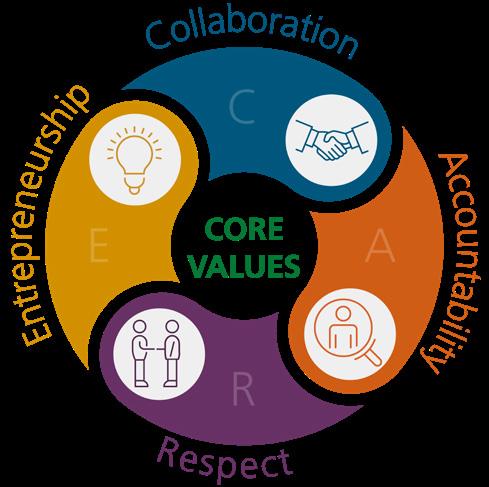
Read more about our values online at meda.org/about and our team at meda.org/our-team
302 Global MEDA Staff 50% of leaders globally are women 15
MEDA’s staff team in Kenya
Creating business solutions to poverty
The women are members of the DJIMOUGNORE Women’s Promotion Group (GPF) of DIANTÈNE (located in southern Senegal), whose well in the horticultural perimeter has been equipped, by the IREM project, with a submersible pump powered by solar panels. The solar pumping system facilitates the extraction of irrigation water that was previously retrieved manually.

For
Printed by: WATT Solutions
|
|
a list of all our offices, visit meda.org/about/contact Author: Krista O’Brien Design: Dalilah Jesus
Inc. | London ON, Canada meda.org
meda@meda.org
1.800.665.7026






 Gaeddert Chair, Board of Directors
Gaeddert Chair, Board of Directors
 Nyambi President & Chief Executive Officer
Greg
Greg Gaeddert
Dr. Dorothy
Dr. Dorothy Nyambi
Nyambi President & Chief Executive Officer
Greg
Greg Gaeddert
Dr. Dorothy
Dr. Dorothy Nyambi










